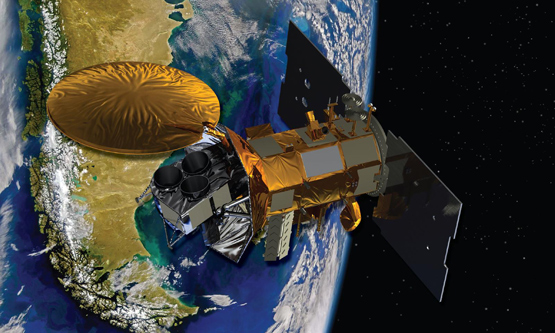David D. Chen awarded NSERC Fellowship for Earth Remote Sensing
The bulk of Chen’s current research centers on the detection and mitigation of radio frequency interference with microwave radiometers.

 Enlarge
Enlarge
David D. Chen, doctoral student in the Electrical Engineering program, received a fellowship from the Natural Sciences and Engineering Research Council of Canada (NSERC) for his research on RFI detection and mitigation. Chen works with Prof. Chris Ruf, a professor in the Department of Atmospheric, Oceanic and Space Sciences (AOSS) and EECS.
“The bulk of my current research centers on the detection and mitigation of radio frequency interference (RFI) with microwave radiometers,” explained Chen. “Although spaceborne radiometers operate within protected bands reserved for scientific research, it’s evident from past spaceborne missions and airborne campaigns that that man-made sources of RFI are high enough and prevalent enough to significantly impact science objectives such as measuring ocean salinity and soil moisture. We are currently analyzing and tuning the performance of the RFI algorithm of the Aquarius radiometers, which were launched in June of this year. In addition to time-domain glitch detection, which is used by Aquarius, we plan to develop and implement other methods, including those based on signal statistics and polarimetry, in preparation for Soil Moisture Active Passive (SMAP), an upcoming hydrology mission.”
About the Award
The Natural Sciences and Engineering Research Council of Canada has several programs for graduate fellowships. David was awarded the Alexander Graham Bell Canada Graduate Scholarship, which provides 1 year of financial support to Canadian citizens pursuing a degree in science or engineering.
 MENU
MENU 
